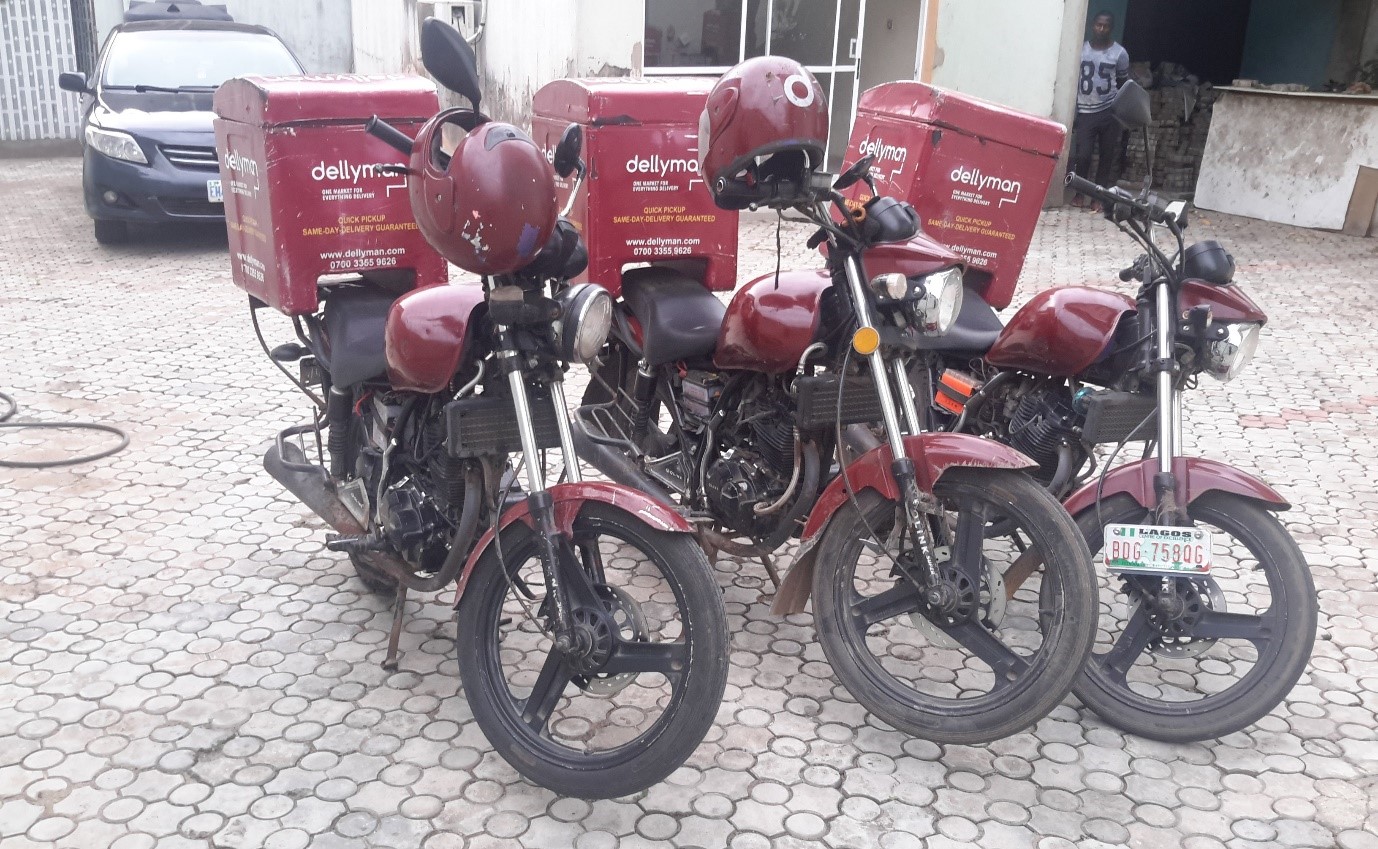The Nigerian logistics market is generating a lot of buzz as e-commerce pivots away from singular platforms to individual merchants handling their own deliveries. Dellyman, a Lagos-based logistics provider, is the latest company tapping into this trend.
Founded in 2019, Dellyman is an aggregator platform for small scale logistics providers. The platform was created by Dare Ojo-Bello, who is also the CEO of Matt O’Bell, an 8-year-old software consulting firm.
According to Dare, the ultimate aim of Dellyman is to provide efficient same-day delivery to merchants.
“Not many people can execute same day,” Dare told TechCabal, “[and] we understand why.”
“The journey to same day delivery starts with how quickly they [logistics operators] can pick up an item,” he explains, “that’s the part that bothers the customers. Once the package hasn’t been picked up, they begin to feel like the delivery will never be done.”
As a direct-to-customer platform, Dellyman says it has a solution for this. The platform allows users to make deliveries by selecting the dispatch riders that are closest to them.
“We handle this by matching delivery assets that are close to the pickup points, similar to how Uber works,” Dare explained. Customers can see the riders from different operators that are closest to them and the ratings for each rider, then select the one they prefer.
According to Dare, the platform allows users to easily track their orders after pickup to know exactly where it is and how long it takes to be delivered.
Dellyman started out as a spinoff idea in 2018 at Matt O’Bell Ltd, Dare’s software consulting business.
In 2018, the company secured a deal to build an e-commerce system for a client. Dare declined to disclose the name of the company but hinted it is a top payments company. The platform “was intended to disrupt the e-commerce space”, he said.
“In the process of doing that, of course, we decided to discuss logistics as well,” he disclosed.
The client wanted to fulfil same day delivery for every order and needed a way to integrate with as many logistics providers as possible. Dare shared that they were targeting up to 50 partners at the time.
The Dellyman platform was aimed at addressing this. “But as we built it, it started to get a life of its own,” Dare said.
Rather than integrate multiple logistics providers to just one e-commerce company, he decided to develop an aggregator platform for logistics operators, allowing them to make deliveries for Matt O’Bell’s client as well as other businesses. This way, they can optimise their delivery assets while fulfilling same day delivery needs.
Dellyman’s revenue model is simple and competitive, Dare said. It charges 20% for every delivery done on its platform. “We automate the settlement process so within 24-48 hours our logistics partners receive their money.”
Although it was launched last year, Dellyman went live in January 2020. It had onboarded a small number of third-party operators who had limited assets. Since then, the platform has grown gradually.
In January, Dellyman said it fulfilled 126 deliveries, which increased to 392 deliveries in February. But its limited delivery assets restricted its reach. Failed order requests increased as very few riders were able to pick up deliveries in many locations.
It tried to fix this. In March, it partnered ORide, OPay’s bike transport service, and secured 10 delivery bikes. That number later increased to 15. In the same month, delivery numbers rose slightly to 450, the company told TechCabal.
Dare explained that in March, the effects of the COVID-19 pandemic had become obvious in Nigeria as merchants struggled with imports. “[Yet] one would have expected that this would depress the [logistics] market, but that wasn’t the case.”
With the new bikes, April was Dellyman’s first real growth period. The company claims its delivery numbers tripled to over 1,500 as key Nigerian states went into pandemic-related lockdown. Dare claims growth continued in May with orders rising over 2,000. For June, the company expects deliveries to top 3,000.
Despite this growth, Dellyman is a small fish in the bike logistics industry. Companies like Gokada, MAX, ORide, Red Star, GIG Logistics and Kwik are the market leaders. Each of these companies has their fleet of motorbikes and established brand presence over the last few years. Without massive scale, Dellyman will struggle to get a place in the sun.
Dare said the company is trying to pull this off in a number of ways.
“We are looking at the model that would allow us to accelerate logistics operators so that they can bring their assets on board,” he said. “Our target is that by the end of the year, we should have about 500 to 600 fully verified active partners on the platform.”
Dellyman is also hoping the fragmented nature of the country’s logistics industry will encourage companies with very few assets to join the platform instead of going it alone.
“There is power in aggregating 5,000 logistics companies that own one or two assets,” Dare said. “We need to rally small companies that fit our platform [and] that would even make us bigger than DHL as far as the last mile is concerned.
Dellyman is hoping this happens especially with the new logistics enforcement efforts in Lagos and across the country. The Lagos government is cracking down on unregistered and unorganised logistics services. The measure intensified following an increase in small scale logistics providers following the ban on bike hailing in February.
Dare said, “you can’t have an industry like this providing essential services without regulation.” But with a licence fee of ₦2 million, he doubts small timers can survive. He is hoping the aggregator model will cover the licence cost for hundreds of individual logistics asset owners.





















